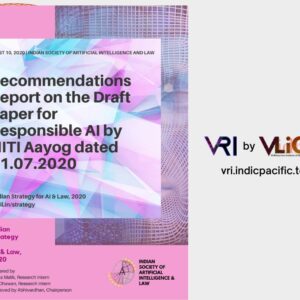This work is licensed under Creative Commons Attribution-NonCommercial-NoDerivatives 4.0 International ![]()
The understanding of artificial intelligence must be AI-centric and it is important to consider that artificial intelligence has an entitative nature. The article thus proposes an analytic legal model on the entitative nature of artificial intelligence with jurisprudential reference and systemic modulations on AI Ethics for the influence in the realm of public international law. The proposed model applies in general cases and is not extended to the ambit of international humanitarian law.
The proposition in the article affirms and establishes that Artificial Intelligence, resembles, based on its juristic ontology, an entitative nature, where an AI is a more original and unique entity of its kind, without any imitated human personified characterization. In estimation, the genealogy of artificial intelligence is social and technical. It is a general proposition that artificial intelligence cannot be limited to the scope of a subject of use or a mere human artefact. The first nature of an AI, as affirmed in the polite convention theory, i.e., the Turing Test and the Dartmouth proposal, is the subjective one, with no self-transformative capabilities entitled, which is described in the propositions of the article as the Utilitarian Nature of AI.
The latter nature, which we focus on the proposition, is the entitative nature of AI, also known as the Self-Transformative and Entitative Nature of AI (STEN). Artificial Intelligence, as a realm, renders a potential to exist as a unique, general and diversely transformative juristic entity. This nature, evolves via the penetration of social, cultural, management and economic factors, leading to more socio-human development of AI, in the field of law and anthropomorphism.
| IndoPacific.App Identifier | SCA-R5 |
|---|---|
| Author(s) | |
| Publisher | |
| Publication Type | Digital |
Only logged in customers who have purchased this product may leave a review.


![India-led Global Governance in the Indo-Pacific: Basis & Approaches [GLA-TR-003]](https://indopacific.app/wp-content/uploads/2023/02/sandjbwsfh-IPLR-Gmail-ADMIN-300x300.jpeg)
Already on VLiGTA? Log in
Having trouble logging in? Learner help center
This site is protected by reCAPTCHA Enterprise and the Google Privacy Policy and Terms of Service apply.
Reviews
There are no reviews yet.